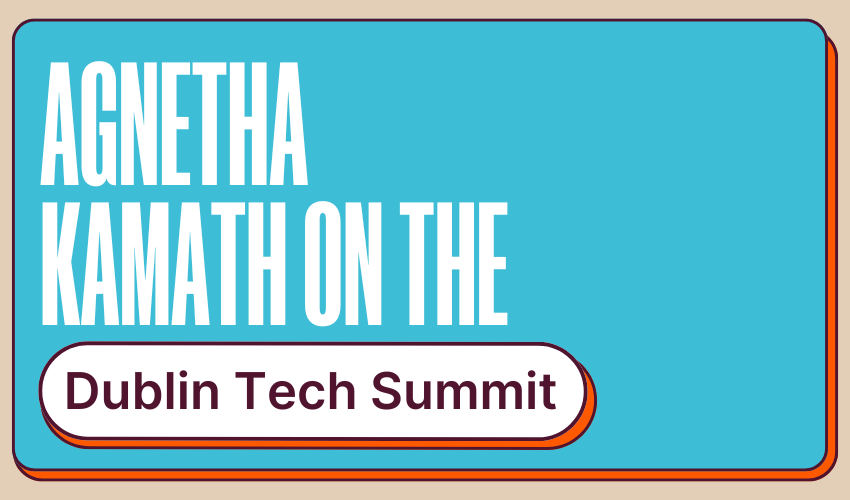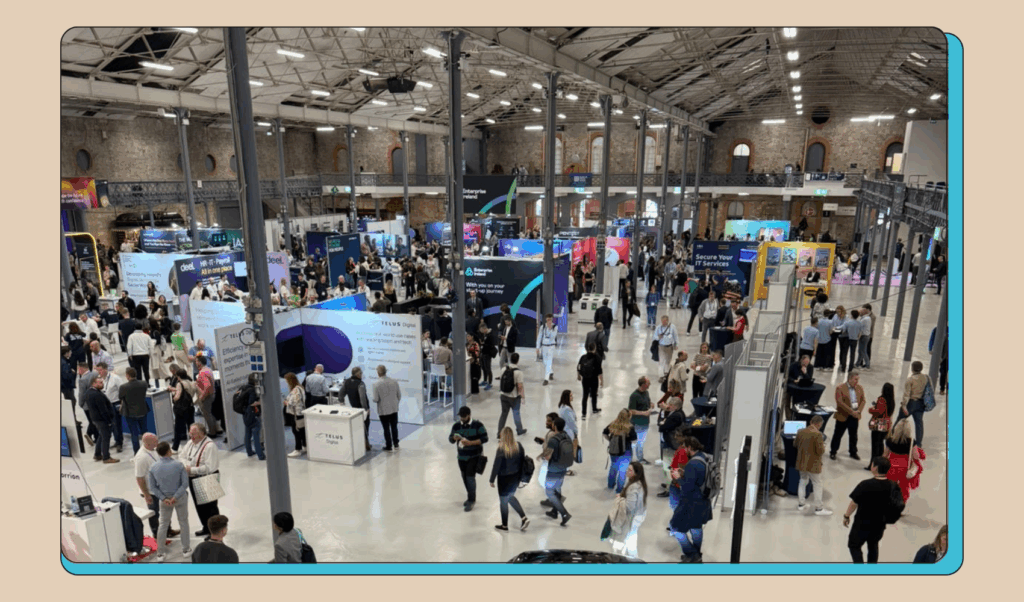
by Agnetha Kamath, RTC Conference Scholarship Winner
The Dublin Tech Summit was an incredible experience that exceeded all expectations. While I had mentally prepared for a full and eventful schedule, I was still taken aback by the sheer scale of the event, from the number of stalls to the wide range of talks available.
Most of my time was spent amid the stalls, where companies and organisations showcased their work. Admittedly, I found it a little intimidating at first to approach the exhibitors, especially when I couldn’t think of any questions to ask off the top of my head. I’m glad I pushed past this hesitation, though; not only did I learn a lot about emerging technologies that I was unfamiliar with, but it also deepened my appreciation for technology and how it can be applied in so many fields to solve a multitude of diverse, sometimes unexpected, problems.

Attending the talks were not as daunting, but no less insightful. I mainly focused on sessions about AI and cybersecurity, where speakers discussed current challenges and potential future issues, both technical and ethical. The workshop talks in particular demonstrated the use of some of the software tools presented at the exhibition, and it was really interesting to get a more concrete idea of the concepts I’d just learned about.
My only regret is that I didn’t get to watch more of the regional semifinals of the Startup World Cup Competition, where participating startups pitched their product to a panel. From the few I did catch, it was fascinating to see how complex technologies, which were undeniably founded on specialised knowledge, were distilled into clear, compelling presentations that anyone can understand. Some of these solutions addressed niche industries, yet the underlying ideas were communicated so effectively that their value was easy to grasp.
I came to the conference only expecting to learn about developments in different areas of computer science, but what also stuck with me was a strong theme of effective communication echoed in every aspect of the summit. Whether in casual conversations at the stalls or formal presentations on stage, it became abundantly clear that no matter how technically brilliant a technology might be, its success often depends on how well its importance and relevance are communicated.
It can be very easy to get wrapped up in the underlying mechanics of our projects and forget that the average user doesn’t really care about them as much as we do; they care about how it impacts them. Seeing this principle in action across so many different settings at the conference left a lasting impression. I came away not only inspired by the technologies themselves, but also by how effectively they were presented. I hope to carry these insights forward into my own work, and I would like to thank RTC for providing such a valuable opportunity.